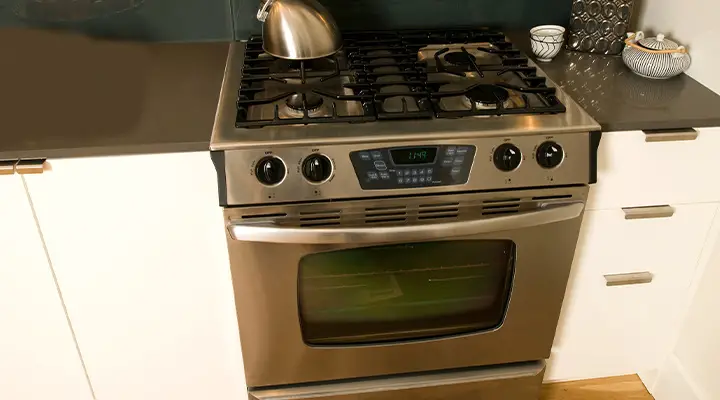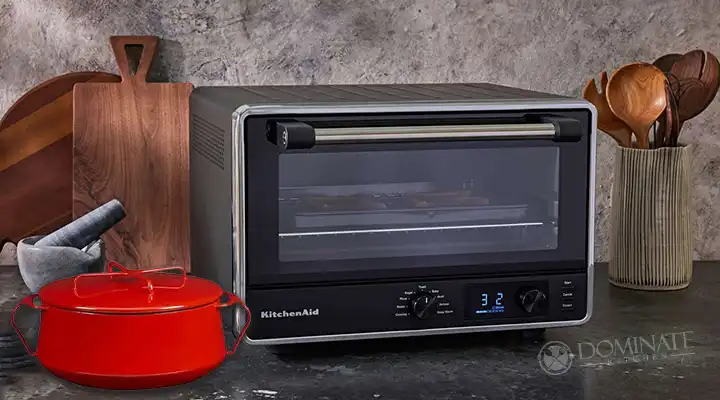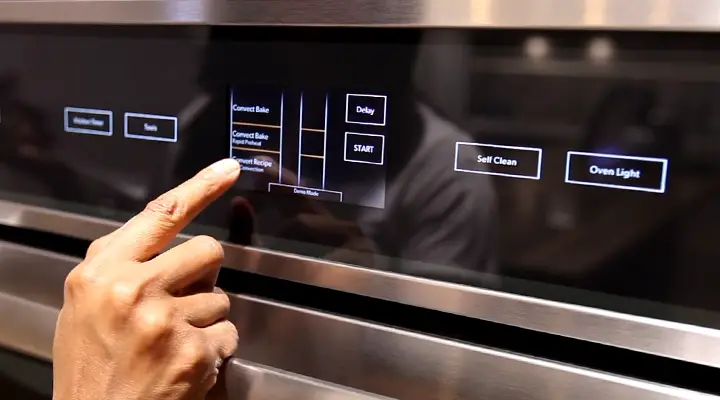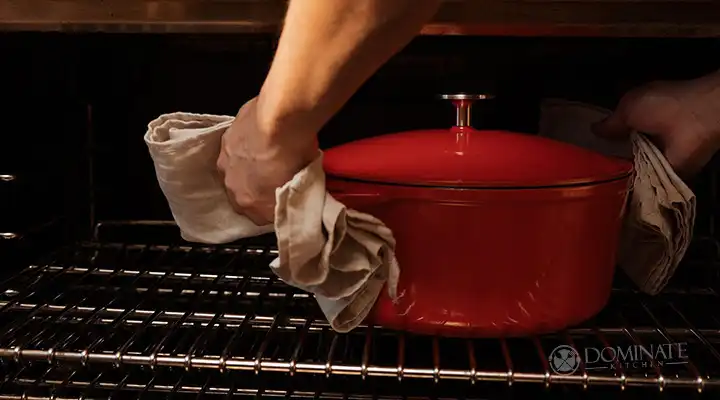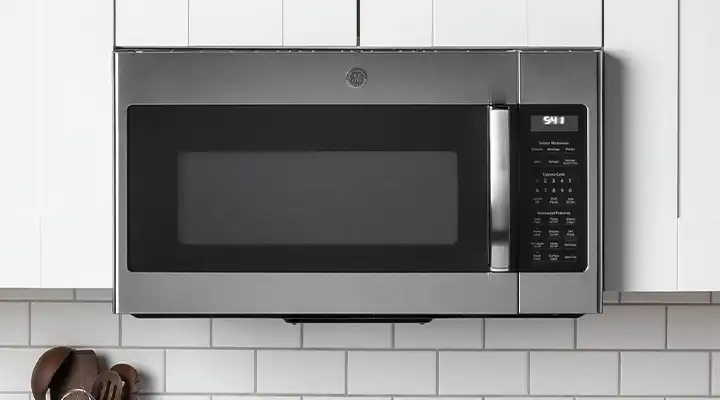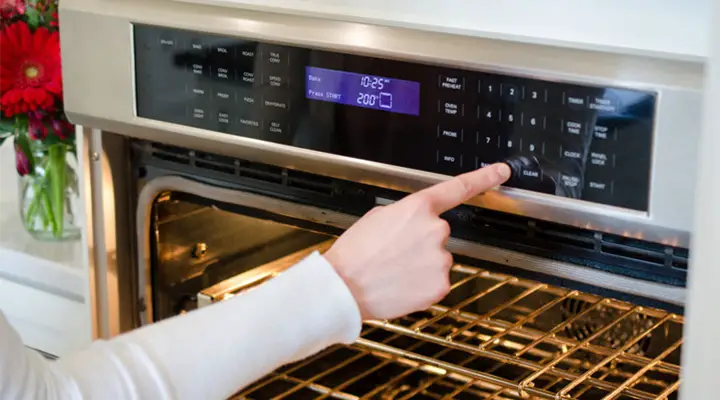Can You Leave the House With the Oven On? (Electric and Gas Oven)
We’ve all left the oven and other household appliances on for hours or overnight at some point in our lives. Sometimes we turn on the oven to bake cookies or cook dinner, only to forget to turn it off! And sometimes we leave oven on purposefully, won’t it be wonderful if we can come back home to instant hot delicious foods!
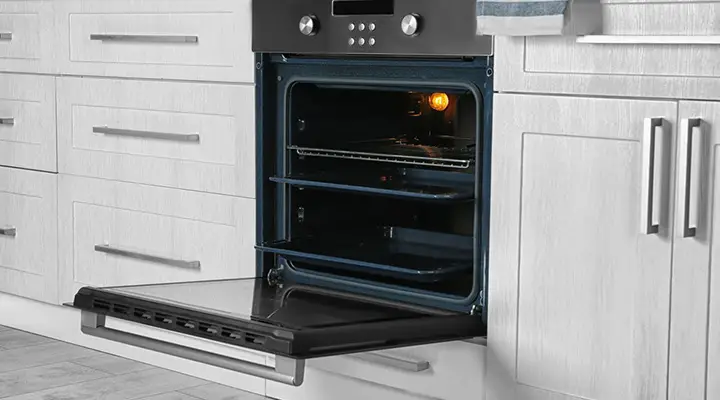
But can you leave the house with the oven on? No, you can’t, that’s why we go to the hassle of preparing the foods after coming back home after a long day. The consequences of leaving an oven on can be disastrous. You risk starting a fire and poisoning yourself with carbon monoxide from electric and gas ovens.
Can You Leave the House With the Oven On
You cannot leave the house with the oven turned on. There are several reasons for why can not do this, we will discuss this issue in this section.
If You Leave Your Electric Oven On
Electric ovens utilize electricity rather than gas and, since they do not generate harmful gases, are safer to use than older gas stoves. That’s why they are often left on for lengthy periods of time without causing harm. A fire may start with an electric oven if there are combustible or easily ignitable components present.
For example, oil or crumbs from leftover meals can help spreading fire. Grease, in particular, is very flammable and, if untreated, may easily ignite. People endanger themselves by keeping the oven running for hours or overnight to heat a room or leaving the house while cooking or warming foods in the oven.
If the homeowner has anything else around, such as oven mitts or kitchen towels, those may also catch fire, and the kitchen or worse may be engulfed in flames before you know it. The oven knobs and temperature dials may melt and catch fire if you leave the oven door open while the oven is still running.
If You Leave Your Gas Oven On
It’s even dangerous to leave a gas oven on when it’s turned on. If you are not at home, this may start a fire, but if you are, you may be at risk of carbon monoxide poisoning without even realizing it. Most of the times, it is too late to detect the gas leak.
Carbon monoxide poisoning causes symptoms similar to a bad case of the flu, such as headaches, dizziness, nausea, weakness, confusion, shortness of breath, loss of consciousness, and so on. So, if you are already breathing this harmful gas, it will be harder for you to deal with accidents due to turned on gas oven.
Investing in a carbon monoxide monitor is one way to avoid manual gas detecting issue. A smoke detector is also an excellent choice for any type of oven. You can also compare your gas bills over a two to three-month period to see if your stove is leaking gas. If you notice a sudden increase in price, there could be a gas leak.
How Many Years Does A Microwave Oven Last
Microwave ovens can last anywhere from a year and a half to more than 20 years. However, with normal use, the average oven lasts about 7 years. The lifespan is reduced when there is heavy usage and poor maintenance. Inadequate installation and using the wrong dishware inside the oven also contribute to its demise.
This kitchen appliance typically lasts 4-5 years in a typical household with a large family. This occurs as they become more reliant on the microwave oven to cook, defrost, and heat leftovers and snacks. But in case you leave alone or use the oven once in a blue moon, it will last way longer.
Frequently Asked Questions
1. How to put out oven fire if the oven door is opened?
An open oven door usually starts a fire because an inflammable object was left too close to the oven. A Class A fire extinguisher should be used to put out the fire. Most fire extinguishers typically last 5-15 years. Check the ones in your house to see if those are up to date and ready for any sudden fire.
2. How can I extend the life of my microwave oven?
To extend the life of your oven, make sure there is adequate air circulation around it. Never use the microwave oven when it is empty. Avoid using metal dishes inside, and for the safety of the electrical components, use a surge protector. Also, when cleaning, use soft soap and water rather than detergent or harsh chemicals.
3. What are the reasons behind caused by an oven?
Excessive cooking temperatures, the use of wax paper instead of parchment paper, the lack of baking sheets, leaving food scraps inside the oven, forgetting about the foods in the oven, faulty appliances, and configuring the wrong settings can all cause your oven to catch fire.
4. How can I tell if my oven temperature is correct?
To check the accuracy of your oven temperature, place an oven thermometer in the center of the middle rack and preheat the oven to 350 degrees Fahrenheit. Allow the oven to heat up for at least 20 minutes before taking a temperature reading. This will indicate whether or not the oven has reached the desired temperature.
Ending Statement
Now you know the answer to ‘can you leave the house with the oven on’ is a big NO, avoid doing so to evade accidents. However, if your oven does catch fire, leave the house immediately and call 911. Trying to extinguish the flames by opening the door will allow oxygen into the oven, which will feed the fire.

